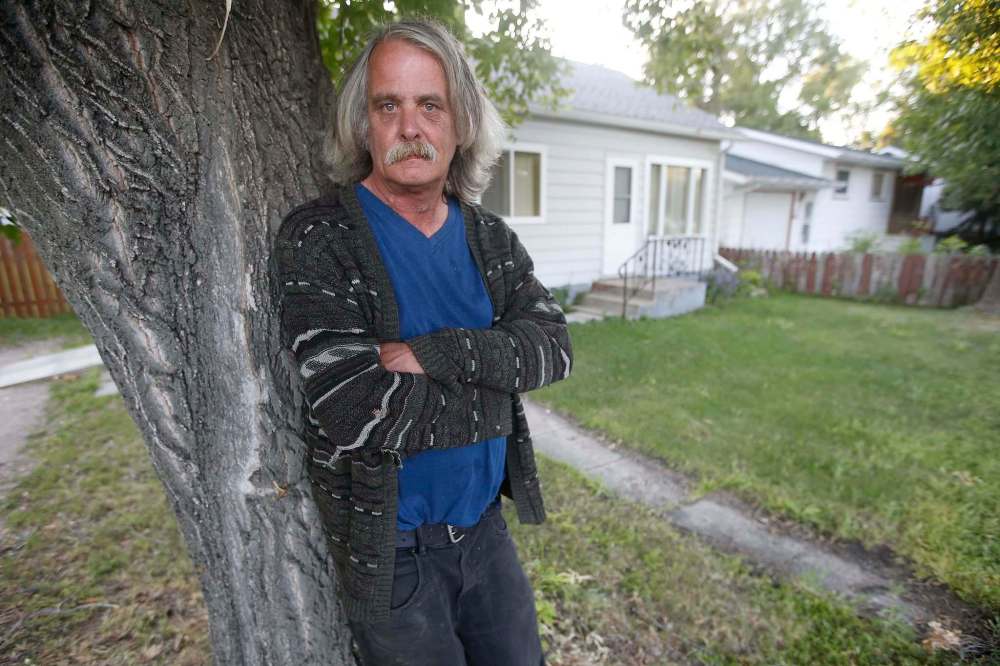Hero pay denied, says gas bar attendant lacking online access
Read this article for free:
or
Already have an account? Log in here »
To continue reading, please subscribe:
Monthly Digital Subscription
$0 for the first 4 weeks*
- Enjoy unlimited reading on winnipegfreepress.com
- Read the E-Edition, our digital replica newspaper
- Access News Break, our award-winning app
- Play interactive puzzles
*No charge for 4 weeks then price increases to the regular rate of $19.00 plus GST every four weeks. Offer available to new and qualified returning subscribers only. Cancel any time.
Monthly Digital Subscription
$4.75/week*
- Enjoy unlimited reading on winnipegfreepress.com
- Read the E-Edition, our digital replica newspaper
- Access News Break, our award-winning app
- Play interactive puzzles
*Billed as $19 plus GST every four weeks. Cancel any time.
To continue reading, please subscribe:
Add Free Press access to your Brandon Sun subscription for only an additional
$1 for the first 4 weeks*
*Your next subscription payment will increase by $1.00 and you will be charged $16.99 plus GST for four weeks. After four weeks, your payment will increase to $23.99 plus GST every four weeks.
Read unlimited articles for free today:
or
Already have an account? Log in here »
Hey there, time traveller!
This article was published 31/07/2020 (1957 days ago), so information in it may no longer be current.
Ron Eldridge was pumping gas at work when the 59 year old’s boss told him about a government risk recognition program to reward Manitoba’s front-line workers during the COVID-19 pandemic.
His happiness at learning about the “hero pay” that would relieve some of the stress at home soon faded. The Portage la Prairie man discovered he needed to apply for the payment by computer.
“I thought it was a good idea, but my boss gave me a number to call because my wife and I are basically seniors and we can’t afford computers, Internet and that stuff,” Eldridge said. “The government said ‘if you can’t get a computer to apply, then I guess you don’t get it’.”

The province announced on Wednesday 78,442 people will receive the $1,377 payment from the program. The application was available online on all government portals, it said.
“I told the government I’m not going to run out and spend money I don’t have on a computer or Internet,” said Eldridge. “We can’t even afford cable and they want me to go out and buy a computer to apply for it, like no.”
Eldridge’s wife, 70, has a lot of medical problems and he had to cut his hours down at work to be home with her, he said. The hero pay would help them a lot.
“The government said ‘if you can’t get a computer to apply, then I guess you don’t get it’.” – Ron Eldridge
“We’re behind in Hydro, we’re basically living off Kraft Dinner and peanut butter and jam sandwiches and stuff like that to make ends meet. Every cent we can get helps and I qualify for that.”
When it comes to having trouble applying for the risk recognition program online, an associate computer science professor at the University of Manitoba said she wouldn’t be surprised if more people were having the same issues as Eldridge.
“Some older adults haven’t really spent their working lives using computers,” said Celine Latulipe. “Just generally using a computer, never mind getting online to the Internet is a bigger challenge for them. They don’t know the common ‘click here, use your mouse and move your cursor there’ and that’s hard for them.”
Latulipe added that a lot of times seniors will have seek out help while using a computer.
“Right now, it can also be harder for older adults to and seniors to get help,” she said. “A common place they could go to get help is a public library and the public libraries haven’t been open. Or they might get help from someone they know, but they are trying to social distance and might not feel safe either.”
Although some seniors may have problems signing up for the federal-provincial program online, a 2016 StatsCanada survey shows seniors are increasingly using the Internet.
In 2013, 52.40 per cent of seniors used the internet; in 2016 that number increased to 68.20, the survey said.
The StatsCanada survey also measured how seniors aged 65 and older viewed technology and compared that to non-seniors aged 15 to 64. 55.8 per cent of non-seniors said the internet always helps them communicate with people, while only 22.5 per cent of seniors felt that way. Only 16.7 per cent of seniors believed the internet saved them time, while 39.8 per cent of non-seniors said it always saves them time.
The application for the hero pay is closed, but Eldridge said he called Portage la Prairie MP Candace Bergen Thursday morning and they opened a case file to try and help him access the risk recognition program payment.
kellen.taniguchi@freepress.mb.ca











